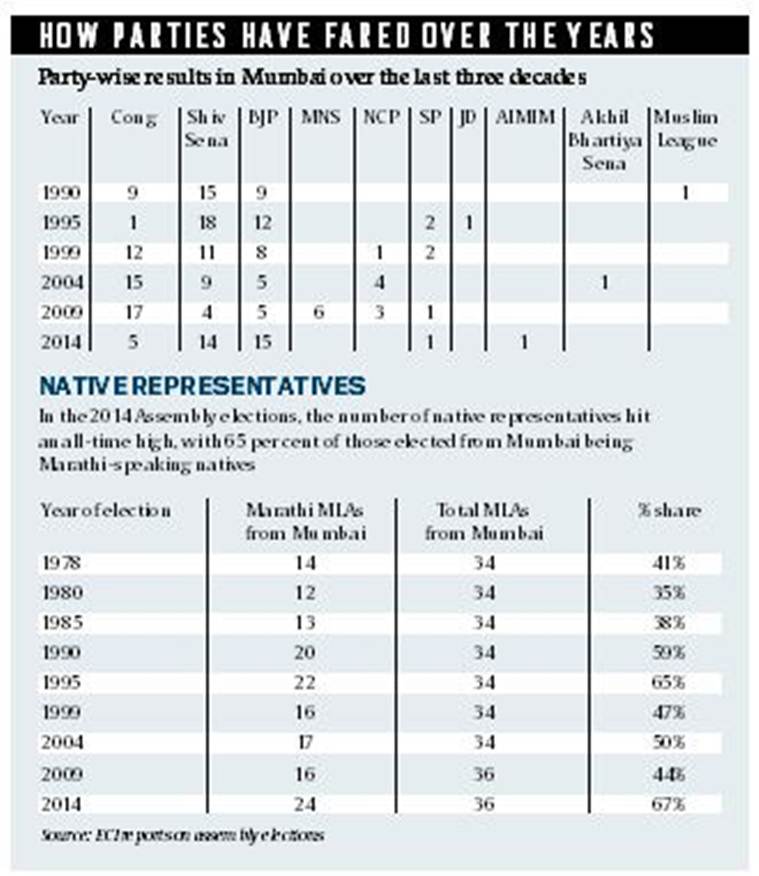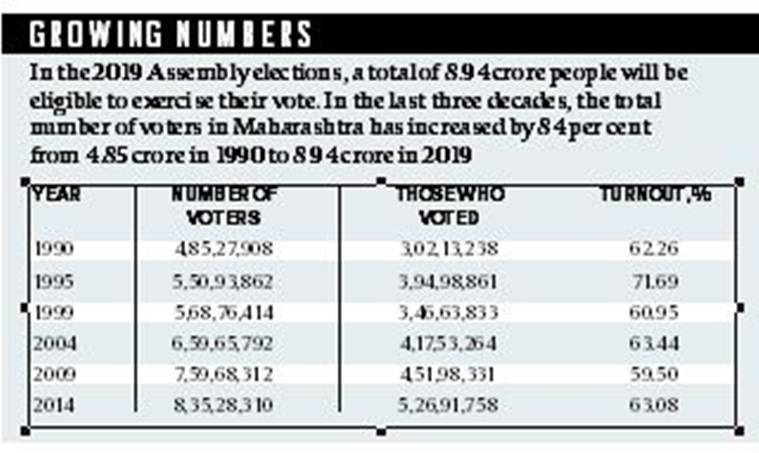
Mumbai is known as a city of sharp contrasts — a characteristic seen most visibly in its 36 Assembly constituencies stretching from the upmarket areas of Malabar Hill to the slum-dominated pockets of Mankhurd-Shivaji Nagar.
The most striking feature of the 2019 Assembly election is the strong attempt being made by both the BJP and the Shiv Sena to make inroads into pockets which were hitherto not deemed to be their traditional bastions.
Historically, the party which wins the maximum seats from Mumbai ends up forming the government in the state. Keeping this in mind, both the BJP and the Shiv Sena have made a concerted attempt in increasing their presence in Mumbai.
The BJP has been the most aggressive in this regard, coupling its nationalism pitch with making the recent transport infrastructure transformation in the city the focal point of its re-election bid. The BJP, through various government agencies, has been proudly showcasing infrastructure projects such as the Metro, which it says will change the way the city travels.

Apart from harping on the development initiated by Chief Minister Devendra Fadnavis, the BJP has also indulged in realpolitik, engineering defections from opposition ranks which have increased its prospects in constituencies that it does not control.
The Shiv Sena, by contrast, which has deemed Mumbai to be its own pocketborough, is also fighting to increase its presence in the city. This election assumes special significance for the Shiv Sena because it may be the first time that a person from the Thackeray clan directly faces the electorate. The Shiv Sena has been laying the groundwork to field party scion Aaditya Thackeray, possibly from Worli. Party chief Uddhav Thackeray’s recent statements opposing the presence of a Metro car shed in Aarey is also being seen as part of a concerted image-making exercise to portray Aaditya as a “woke” champion of socially progressive values.
The Congress, meanwhile, which has seen defections of some prominent city leaders, is having difficulty in controlling the loss of its support base. Migrants, especially those from North India, have played a seminal role in the development and growth of the Congress in Mumbai.
Their presence had fuelled the nativist agenda, helping the growth of parties like the Shiv Sena and MNS even as North Indians gravitated towards the Congress.

The concept of an ethno-religious identity sold by the BJP, however, has hurt the Congress, with its North Indian voters gradually gravitating towards the BJP over the last few years. This has translated in the Congress losing out on its erstwhile strongholds and only relying on minority and Dalit-dominated pockets in the city for its continued electoral presence in Mumbai. Four of its five sitting MLAs from Mumbai come from Muslim- and Dalit-dominated areas. With former MP Eknath Gaikwad at its helm, an immediate revival in fortunes does not seem likely.
The NCP, which never had a substantial presence in Mumbai, will be facing testing times after the exit of its former city chief Sachin Ahir, who has moved to the BJP.
The upcoming elections will also be a major test of support for Raj Thackeray’s MNS. The MNS, which had won six seats in the 2009 elections, was seen by many as a political alternative in Mumbai.
The party has, however, gradually been losing support in Mumbai. While the MNS choose not to contest the 2019 Lok Sabha seats, the party is likely to field candidates from Mumbai for the Assembly elections.
The Vanchit Bahujan Aghadi, the AIMIM and the Samajwadi Party are also likely to play a role and make a dent in the Dalit and Muslim pockets of the city.